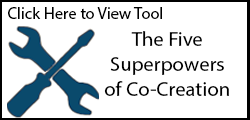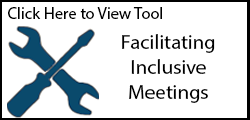Inclusive Workgroup Management
Relational Partnership
7 Pit Stops Toward a Belonging State document is a comprehensive framework that illustrates various components that individuals, agencies, or workgroups can utilize and embed in their approach to working together in a mutually beneficial way. To effectively co-create and advance equity, justice and belonging for all Washingtonians, we must be aware of how we are showing up whether for ourselves or others. This one-pager is a tool to help us understand the nuance involved in building and sustaining relationships in our respective roles as public servants. With these 7 Pit Stops: Trust, Healing, Mindset, Community, Vulnerability, Intentionality, Reflection & Accountability, Belonging, we can holistically foster an environment that is conducive to achieve Pro-Equity, Anti-Racist values and goals.
What is Relational Partnership?
Relational Partnership is a framework that centers and values relationship building as a core principle to how government co-creates internally and with the communities we serve. It is a key component of the Shared Power Principle. This framework is a shift from our current model of transactional management where government dictates to historically and currently marginalized groups how they should interact with government services. Relational partnership includes the affected communities in every decision.
Why is it Important?
To advance Washington for all, government must be relational. This is a tool to help you build and sustain relationships with colleagues and the communities we serve. The bottom line is, we cannot improve upon anything we don’t measure. This tool solves this problem. Use the survey template tool below as a starting point to develop your own internal survey for workgroup members to assess and provide feedback on the workgroup or the agency. This could be something that you issue annually or even quarterly to gauge success of your workgroup. You may also use the prompts to develop a self-assessment survey for your team to measure how you are improving relational partnership internally among agency staff.
Review the tool below called “5 Superpowers of Co-Creation” to support your understanding of shared power and how to put relational partnership into practice.
Effective and Inclusive Meeting Facilitation
Now that you have researched, planned, recruited, and appointed your workgroup members, it’s time to schedule and conduct your meetings and manage the ongoing participation of all members.
Remember that even with all of the pre-planning in the world, it is still possible (even likely!) that mistakes will be made and the community members engaging in policy work with you may not have a perfect experience. You may encounter feelings or statements of distrust from community members because of current and past state government practices and processes. You may accidentally forget to turn on captioning for a meeting or a member might not have disclosed their needs to the workgroup manager in advance. If mistakes happen, acknowledge and validate these feelings and commit to treating community members with dignity and respect. Make sure state voices in the group do not silence community member voices.
Use the tool below to help ensure that your meetings are facilitated in a way that is welcoming, safe, productive, inclusive and efficient.
Back | ToolKit Home | Next


